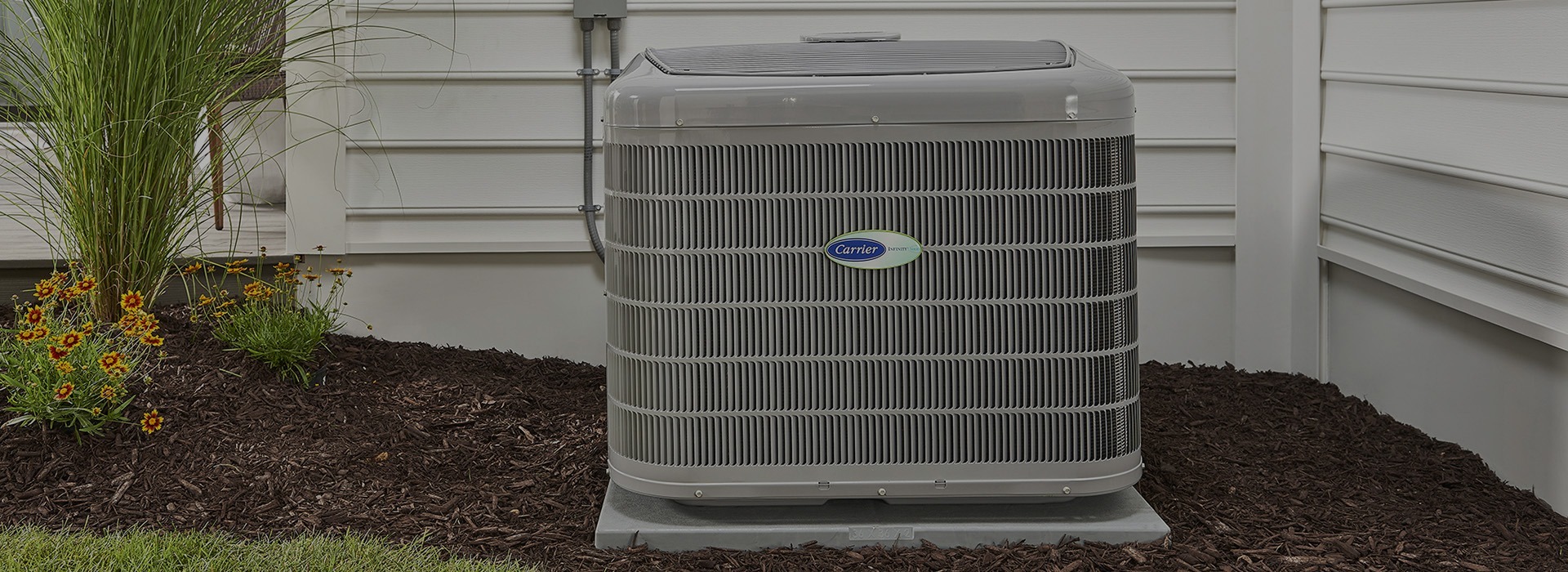How to Pick the Right Heating And Cooling System for Your Requirements
Choosing the proper cooling and heating system is a vital decision that calls for mindful factor to consider of different factors. Begin by evaluating your home's size, format, and special demands, as these elements determine the needed capability and configuration of the system. Furthermore, establishing a budget that incorporates setup and long-term functional expenses is essential. As you consider your alternatives, comprehending power effectiveness ratings and the effects of your regional environment will play a considerable role in your selection. Nevertheless, the myriad of system kinds offered can complicate this procedure, leading one to question which course inevitably causes optimal convenience and efficiency.
Analyze Your Home Dimension
Evaluating your home size is a vital initial action in picking the ideal HVAC system. A Heating and cooling system that is too small will struggle to preserve comfortable temperatures, leading to enhanced energy consumption and use on the system.
To precisely evaluate your home size, measure the square footage of each area, taking into consideration variables such as ceiling height and the layout. Additionally, consider the insulation top quality and the variety of windows, as these elements affect thermal efficiency. Homes with open layout may require various system arrangements compared to those with many divided spaces.
Making Use Of the Handbook J tons calculation approach can give a more specific price quote of your cooling and heating requires. This method make up different factors, consisting of regional environment, solar gain, and occupancy patterns. By carefully evaluating these elements, you can guarantee that your picked a/c system is appropriately sized, causing enhanced comfort, power effectiveness, and longevity of the devices.
Determine Your Budget
Establishing your budget is a critical action in the a/c system selection process, as it establishes the specifications for your alternatives - DMAKS HVAC. An a/c system is a considerable investment, and recognizing your financial limitations will certainly help limit selections that fit within your ways
Begin by assessing not only the preliminary acquisition price however additionally installment expenses, which can vary substantially depending on the complexity of the task. In addition, consider recurring expenditures such as upkeep, repair work, and power intake. A system may appear budget friendly at first but can lead to higher expenses over time if it is much less efficient.
It is a good idea to designate a backup fund for unanticipated expenses that might arise during setup or first system changes (DMAKS HVAC). In addition, discover financing choices or refunds that may be offered, as these can alleviate the concern of in advance prices
Ultimately, having a clear budget plan enables you to engage with heating and cooling specialists better, guaranteeing you get customized advice that lines up with your economic goals and home requirements. By being persistent concerning your spending plan, you can make informed choices that improve convenience without jeopardizing economic stability.
Evaluate Power Performance
Power performance plays an important function in the overall performance and cost-effectiveness of your Heating and cooling system. Look for systems with a high Seasonal Power Efficiency Proportion (SEER) for cooling and a high Annual Gas Application Performance (AFUE) rating for home heating.
In addition, take into consideration the check Power Star accreditation, which symbolizes that the system meets rigorous efficiency standards set by the Environmental Protection Company. Purchasing a Power Star-rated heating and cooling system can result in considerable savings over time, especially in areas with severe temperature level changes.
Another aspect visit the site to review is the system's dimension and ability. An oversized or undersized unit can result in inefficiency and enhanced power prices. DMAKS HVAC. Appropriate sizing, usually identified through a Hand-operated J load calculation, ensures that the system runs at ideal efficiency


Take Into Consideration Environment and Setting
When choosing a heating and cooling system, it is important to take into consideration the neighborhood climate and ecological conditions, as these elements significantly affect the system's performance and performance. Different regions experience differing temperature level extremes, humidity degrees, and seasonal modifications, every one of which impact heating and cooling needs.

Additionally, regional ecological aspects, such as air top quality and prospective allergens, should notify your choice. Equipments equipped with innovative filtering innovations can aid mitigate contaminants and offer cleaner air. Additionally, think about the power resources available in your area-- some heating and cooling systems are a lot more effective when powered by gas or renewable energy resources.
Inevitably, straightening your a/c system option with your local climate and environmental factors to consider will bring about improved comfort, enhanced effectiveness, and lower energy prices.
Explore System Types and Attributes
As property owners look for to maximize comfort and effectiveness, discovering the various sorts of cooling and heating systems and their special attributes ends up being vital. The main sorts of heating and cooling systems consist of central air, heat pumps, ductless mini-split systems, and heaters. Each system supplies unique advantages customized to different demands and preferences.
Air conditioning systems provide consistent air conditioning throughout a home, making them optimal for larger spaces. Heat pumps serve as both heating and cooling services, using power to move warmth, which can result in reduced power costs. Ductless mini-split systems are ending up being significantly popular because of their versatility and simplicity of setup, allowing home owners to manage the temperature level in specific spaces without extensive ductwork.

Verdict
In conclusion, picking the proper a/c system requires cautious factor to consider of different elements, consisting of home size, spending plan restraints, power effectiveness, regional environment, and offered system kinds. A detailed evaluation of these elements makes sure optimal comfort and cost-effectiveness. By following a structured approach, homeowners can make informed choices that line up with their particular requirements and preferences, ultimately leading to enhanced interior air quality and power savings.